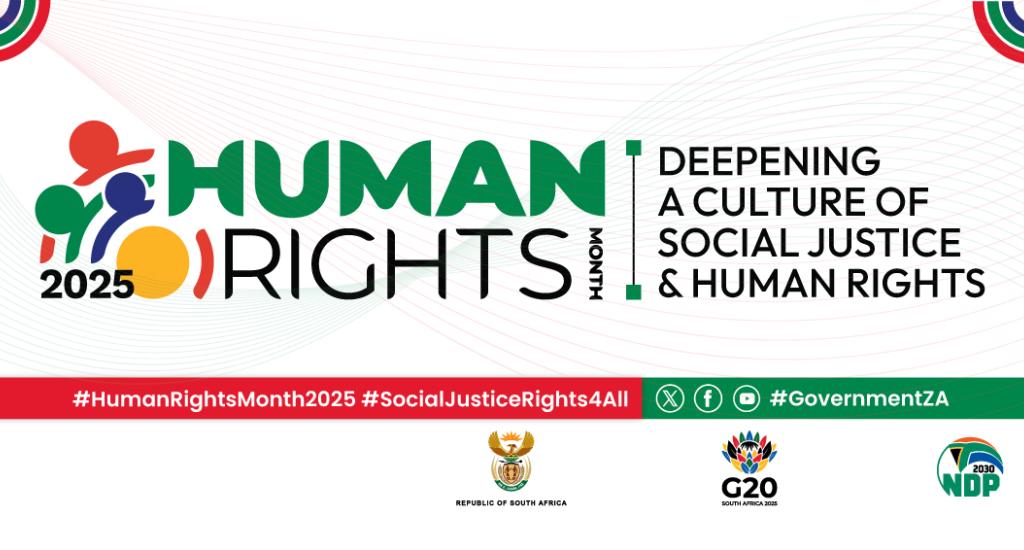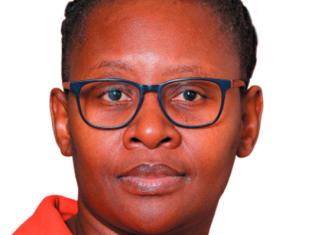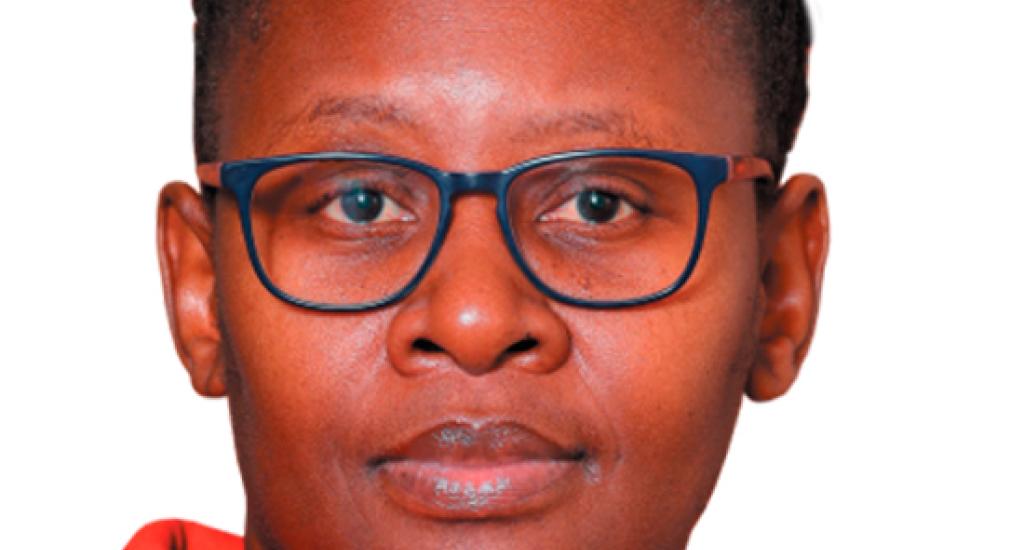Deepening a culture of social justice and human rights

Message from the Acting Director-General
Over three decades ago, South Africa emerged triumphantly from its divided past into a new constitutional order that guaranteed equal rights for all. At the dawn of democracy, the country faced the monumental task of addressing deep inequality, human rights violations, and the brutality of the apartheid regime. While the regime only catered for the white minority, the democratic government was entrusted with a mandate to serve all South Africans, ensuring equality for all citizens.
The freedom and human rights we enjoy today came at a price. South Africans from all walks of life fought for the liberation of the country, many sacrificing their lives in the process. One such tragic event occurred on 21 March 1960 in Sharpeville, where 69 unarmed South Africans were killed while protesting the oppressive pass laws.
The massacre sparked global outrage, prompting the United Nations General Assembly, in 1966, to declare 21 March as the International Day for the Elimination of Racial Discrimination.
On the same date in 1985, apartheid police opened fire on a group of protesters in Uitenhage, killing approximately 20 people, while many others were injured and arrested.
As public servants today, we are privileged to be part of the process that helps South Africans heal from the scars of the past. By implementing programmes and policies aimed at ensuring equality, we contribute to building a more inclusive society. Our efforts are guided by the Constitution of the Republic of South Africa, 1996, which promises, “a future founded on the recognition of human rights, democracy and peaceful co-existence and development opportunities for all South Africans, irrespective of colour, race, class, belief or sex”. This month, we celebrate Human Rights Month and observe Human Rights Day on 21 March, in remembrance of those who lost their lives in the struggle for liberation.
This year, Human Rights Day will be commemorated under the theme, “Deepening a culture of social justice and human rights”. The theme aligns with the Government of National Unity’s (GNU) three key priority areas – inclusive growth and job creation; to reduce poverty tackle the high cost of living; and to build a capable, ethical and developmental state.
Over the years, government has embraced social justice as a core value and principle. Efforts include income redistribution through taxation, government programmes that create equal opportunities, anti-discrimination laws, and policies that seek to ensure equitable access to food, clean water, education and medical care.
In his State of the Nation Address (SoNA), in February, President Cyril Ramaphosa re-affirmed government’s commitment to reducing social inequalities, such as poverty.
He highlighted that government currently allocates approximately 60% of the national budget to social wages, covering health, education, social protection, community development, and public employment programmes.
Government has also enacted several laws aimed at creating equality by transforming some key sectors. The National Health Insurance Act of 2023 aims to achieve universal access to quality health care services.
Similarly, the Basic Education Laws Amendment Act of 2024 reinforces government’s commitment to providing equitable and inclusive education, ensuring that no learner is excluded from accessing quality education at any stage of their schooling.
In January 2025, the President signed into law the Expropriation Bill, which sets out how organs of state may expropriate land in the public interest for varied reasons. The Act repeals the pre-democratic Expropriation Act of 1975 – aligning expropriation processes with the Constitution. The National Minimum Wage Act of 2018 reflects a commitment to establishing a more equitable pay structure, ensuring that workers do not live in poverty. The rate, which is renewed annually, increased from R27.58 to R28.79 per hour, effective from 1 March 2025.
The country’s Chapter 9 institutions, which are tasked with ensuring that state organs uphold the ideals of constitutionalism and are held accountable for their actions or inactions, continue to play a vital role in protecting, promoting, and respecting human rights.
One of these institutions, the South African Human Rights Commission, is celebrating its 30th anniversary this year. Our lead story in this edition highlights the commission’s work in addressing land rights, food security and the national preventative mechanism.
Government has established programmes and initiatives designed to make the country function and ensure that no one is left behind. As implementers of government programmes and policies, it is our responsibility to fulfil our mandates and ensure a government that works for all. We must instil a culture of placing service delivery at the core of our efforts. Let us remain service-oriented, strive for excellence, and commit to continuous service delivery, as envisioned in the Batho Pele Principles. The recently approved Medium Term Development Plan 2024 – 2029 should guide our initiatives to create a more inclusive country that lives up to the commitments of the GNU.
Some of us are entrusted with the responsibility of caring for society’s most vulnerable. While the lack of resources in many public institutions cannot be disputed, our commitment should drive us to find innovative solutions that ensure that we deliver quality services to those who need them the most. Let us view this responsibility as an honour and find fulfilment in seeing the vulnerable in our society live dignified and comfortable lives.
As stated by the President during his SoNA, “We need a government that works for the people. We need a state that is capable and competent, underpinned by a profession-al public service”. We are the driving force behind government, and it is our responsibility to answer the President's call, ensuring that we work effectively and efficiently to serve the people.




